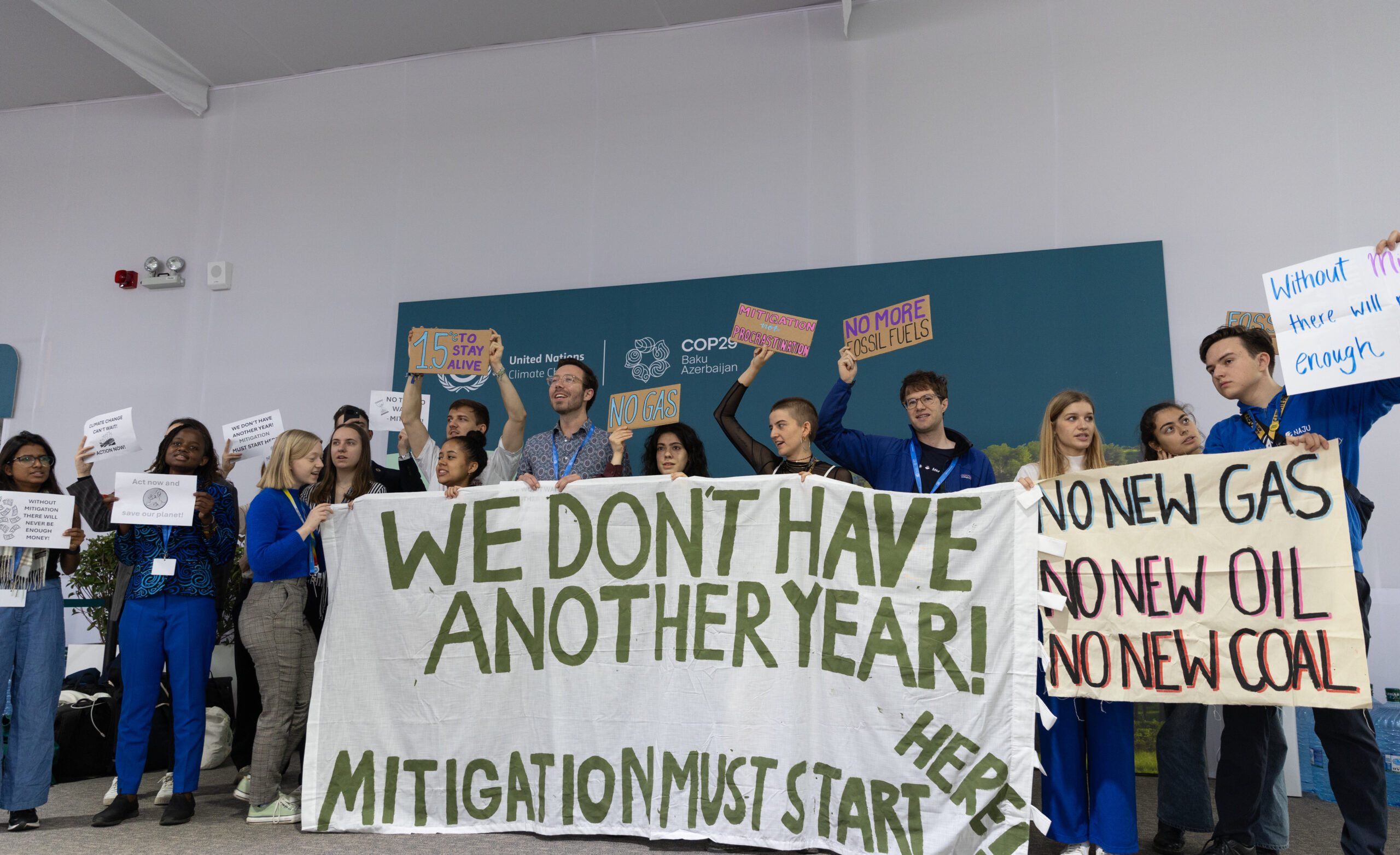Much of the press coverage surrounding COP29 has been negative, defeatist, and unimpressed. Rightfully so: as Al Gore put it, COP29 was “yet again the bare minimum”. With a last minute deal of 300 billion annually for developing countries (a trillion short of what developing countries were looking for), allegations of obstruction by Saudi Arabia and host country Azerbaijan, and outsized fossil fuel interests blocking cooperation, COP29 was far from what one could call a success. Meanwhile, we’ve breached 1.5 degrees celsius of warming for the first time this year (not yet permanently) while global carbon emissions continue to rise and countries left and right continue to fail the Paris Agreement goals.
Still, though our world leaders are excruciatingly slow to change, uncooperative, and ineffective, we must grudgingly remember that a worldwide conference on climate change is our best bet for climate solutions and disaster mitigation.
In that light, it’s worth emphasizing that COP is worldwide: this year, it brought together 198 countries and some 65,000 delegates. As a virtual delegate, I watched as many of their discussions, agreements, and negotiations got lost behind the biggest headlines of the conference. The sheer volume of 900 meetings, conferences, and panels over two weeks meant it was inevitable that some positive news would get lost in the kerfuffle.
One of the most important agreements which has seen relatively little press was the Baku Workplan, which outlines six approaches to increase indigenous voices in climate discussion and policy. Its goal is to integrate Indigenous values and knowledge systems with modern science. Along with this, COP29 renewed the mandate of the Facilitative Working Group (FWG) of the Local Communities and Indigenous Peoples Platform. The past FWG had been running from 2022-2024, and their report outlined both their obstacles and their successes.
One main issue detailed by the report is the misconception of homogeneity amongst the vast diversity of Indigenous peoples – over 470 million people across the entire world. The report recommended more time for meetings of Indigenous representatives to increase the diversity of voices.
A second obstacle preventing effective work included language barriers – not mere translation issues, but the inadvertent dilution of “complex cultural concepts and ecological knowledge” when Indigenous terminology is translated to English. As a solution, the report suggested greater finances for high-quality translation.
Perhaps the greatest challenge outlined in the report, which will not be solved merely by the renewal of the FWG and the Baku Workplan, is the “fundamental misalignment between the prevailing global approach to addressing climate change and the perspectives of Indigenous Peoples”. The global “metrics-based” strategy for solving climate change with less emissions and more money is inherently narrow and reductive, based on an extractive capitalistic framework. Instead, Indigenous perspectives emphasise a reciprocality with the Earth, seeing “not only the physical aspects of the environment but also its spiritual, cultural and social dimensions”. At COP28, Ojibwe elder Great-Grandmother Mary Lyons explained, “we must be the good caretaker and not the bad landlords. It’s not just Indigenous Peoples, it’s all human beings. It’s all plant life, it’s all water bodies, our sky relatives. We are all related”.
How can we begin to address this rift? Of course, there is no simple solution.
One idea is to begin consciously integrating Indigenous knowledge systems and language into official documents, like the Paris Agreement’s groundbreaking inclusion of “Mother Earth”. This would reflect Indigenous values at the highest level of international relations. Other potential solutions are laid out by the Baku Workplan’s six collective approaches. These include an annual gathering of Indigenous knowledge holders to share wisdom and climate practices, and further regional gatherings across all seven United Nations Indigenous socio-cultural regions. The work plan also centers Indigenous youth dialogue, especially in its plan of annual seventh-generation round tables. Seventh-generation thinking, or considering every act’s effect on the world seven generations (150 years) from now, is a broadly held Indigenous framework that has specific roots in Iroquois and Maori philosophy. It is precisely an example of an Indigenous knowledge system that could wholly shift our global climate plans: beautiful in its efficacy and simplicity, so common-sense that it seems ridiculous to operate any other way.
The Baku Workplan is the hopeful beginning of greater inclusion of Indigenous values, experience, wisdom, and voices in international climate negotiations. It’s a “transformational step”, said Inger Andersen, Executive Director of the UN Environment Programme. As the International Work Group for Indigenous Affairs notes, “as long as COPs continue being organised year-on-year, it is important that this voice is elevated beyond those of money and greed”. Indigenous Peoples face some of the greatest levels of exposure to climate change through rising sea levels, habitat decline, and volatile storm patterns. They are at the frontlines of the climate crisis. The Baku Workplan begins to put their voices at the frontlines too.
Next year’s COP30 in Belém, Brazil is already being suggested as the “Indigenous Peoples” COP. It would be fitting at a conference expected to host the greatest numbers of Indigenous delegates yet, in a host country with over 1.7 million Indigenous peoples. There’s hope that it could finally lead to an international agreement that centers Indigenous interests – and therefore, the planet’s interests. As Joseph Sikulu from 350.org puts it, at COP30 “we will be gathering alongside a never before seen showing of Indigenous and civil society partners, and we will turn this around. We know the money exists. We are running out of time, but rich countries are running out of excuses”.
COP29 in Baku was disappointing. So too were the COPs in Dubai, Sharm El Sheikh, Glasgow, Madrid, Bonn, and so on. But importantly, each has led to small bits of progress, building blocks on the way to an inhabitable world.
If that’s too optimistic for you, they’re also all we have.
Originally published in print, December 2024.







